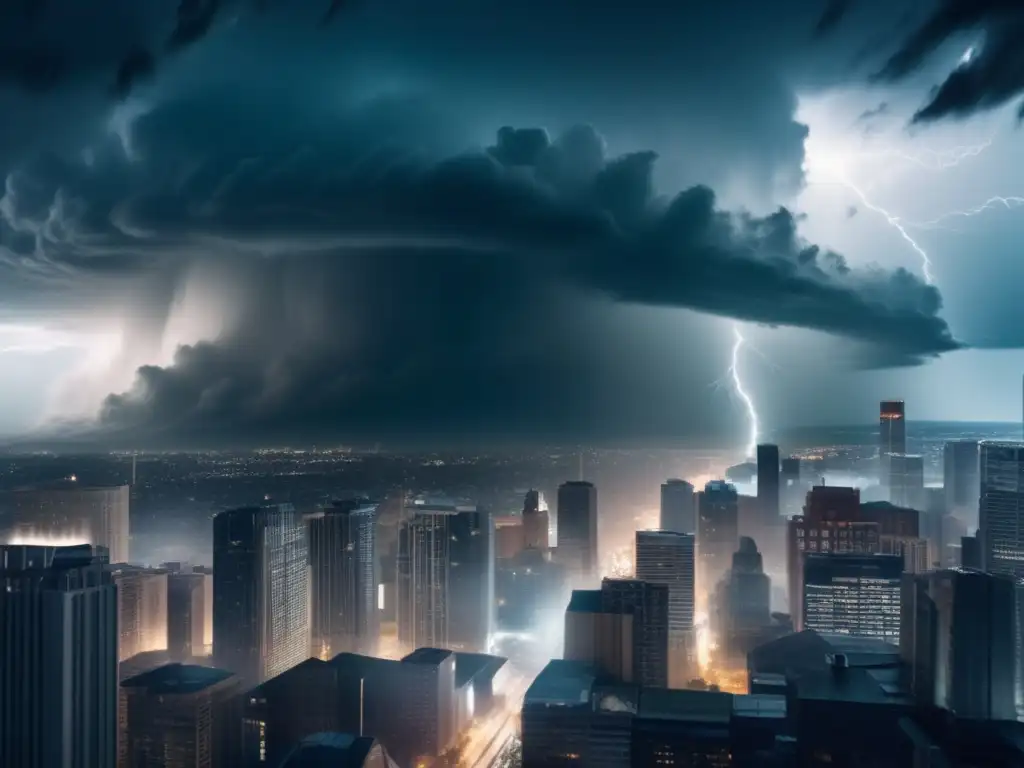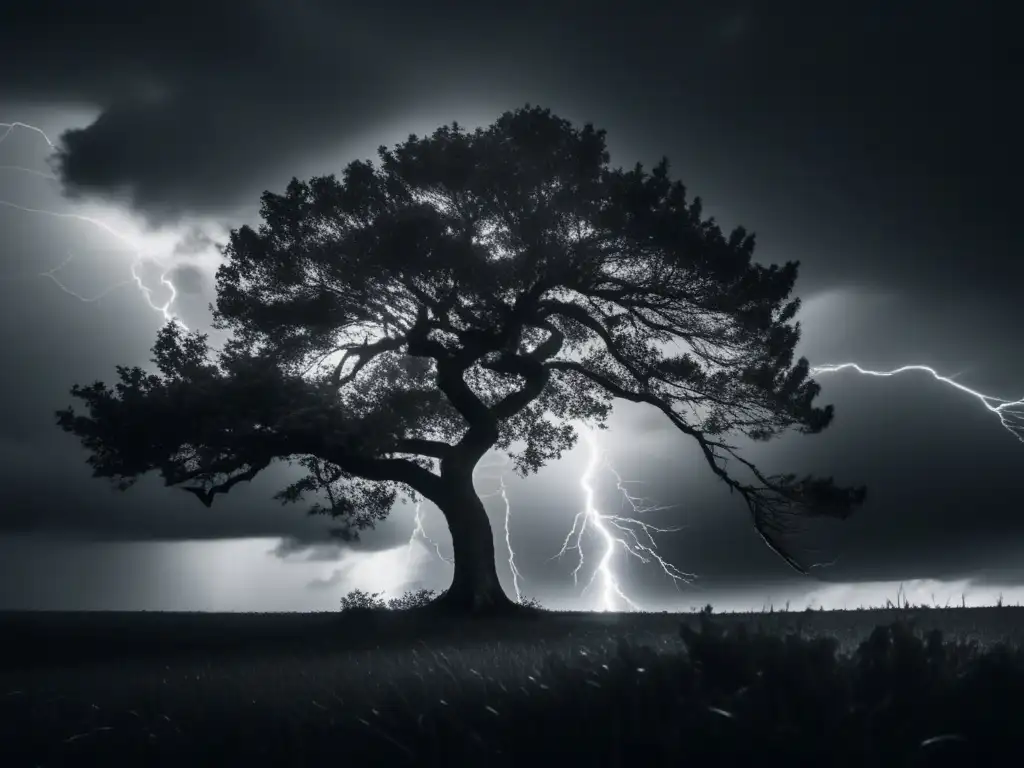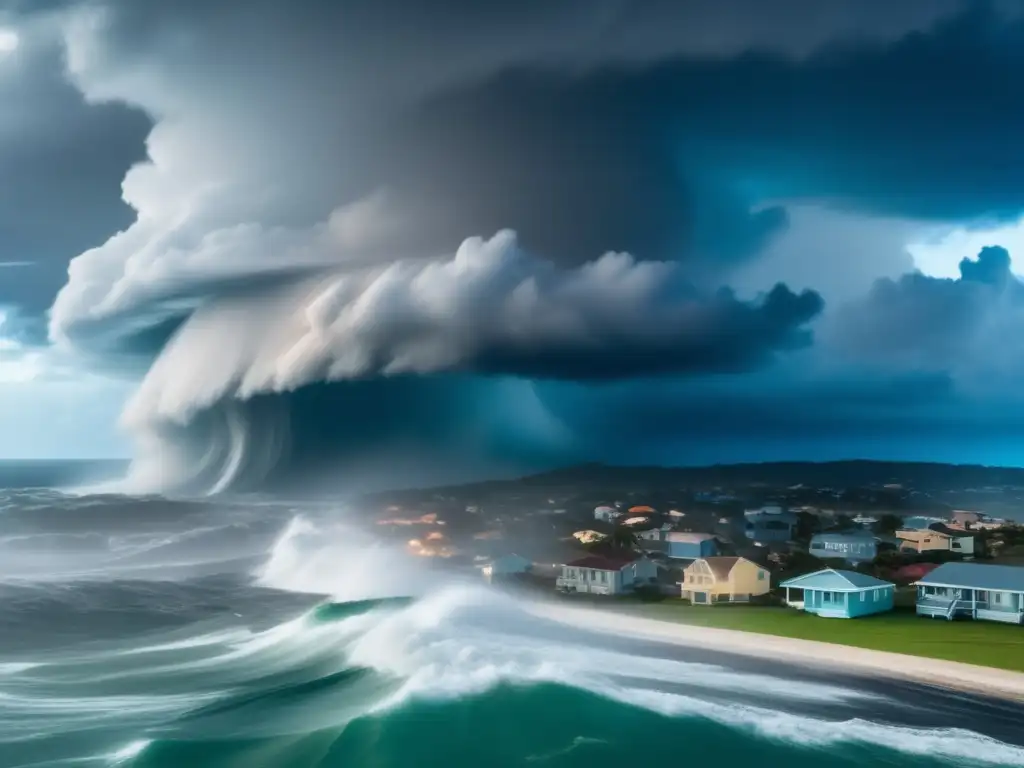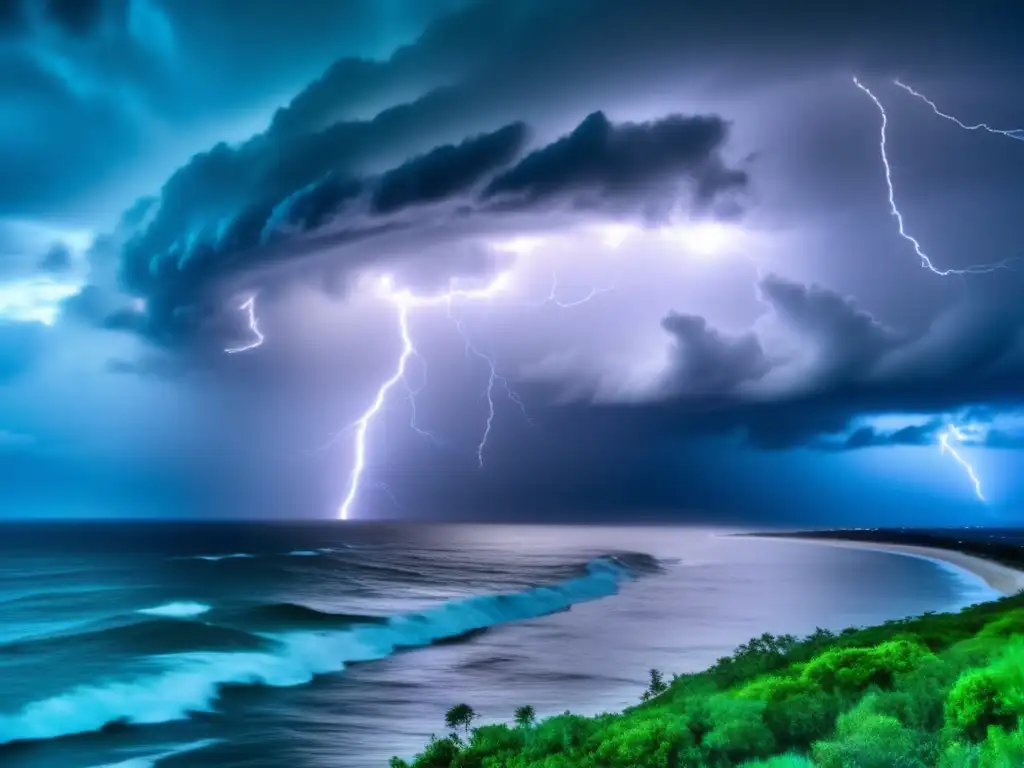Weathering The Storm: What To Expect During A Hurricane

Weathering the Storm: What to Expect During a Hurricane
Introduction
Living in a hurricane-prone area can be very challenging. Hurricanes are powerful storms that can cause severe damage and destruction. Preparing for these storms is critical for safety and survival. This article aims to provide you with basic knowledge about hurricanes, what to expect during a storm, and how to prepare for one.
The Science behind a Hurricane

What is a Hurricane?
A hurricane is a type of tropical cyclone that forms over warm ocean waters. They usually occur between June and November in the Atlantic Ocean, Caribbean Sea, and Gulf of Mexico. A hurricane is characterized by strong winds, heavy rainfall, and storm surges, making it one of the most dangerous weather events. These storms are classified into five categories based on the Saffir-Simpson Hurricane Wind Scale.
How Do They Form?
Hurricanes start as tropical disturbances, which are low-pressure areas that form over warm ocean waters. As warm, moist air rises, it cools and forms condensation clouds. The release of heat from the condensation process causes thunderstorms to develop, creating a spiral pattern around the center of the disturbance. As the disturbance moves across the ocean, it gathers energy from the warm water and can strengthen into a tropical depression, then a tropical storm, and eventually a hurricane.
How are Hurricanes Measured?
The Saffir-Simpson Hurricane Scale measures a hurricane's wind speed, storm surge, and potential for property damage. The categories range from 1 to 5, with Category 5 being the strongest and most destructive. A Category 1 hurricane has sustained winds of 74-95 mph, while a Category 5 hurricane has winds of over 157 mph. Storm surges can also be very dangerous, as they cause flooding and can damage buildings and infrastructures.
What to Expect during a Hurricane

Storm Surges
Storm surges are one of the greatest threats during a hurricane. They occur when strong winds push water towards the shore, causing sea levels to rise. A storm surge can reach heights of up to 20 feet and can cause severe flooding. The combination of heavy rain and high winds can cause significant damage to buildings, infrastructures, and vehicles. It is vital to evacuate if authorities issue a storm surge warning, as it is one of the deadliest threats during a hurricane.
Strong Winds
Hurricane-force winds can cause significant damage to homes, buildings, and power lines. They can also create debris that can become projectiles, posing a danger to people and animals. High winds can make it difficult to drive and walk, especially when combined with heavy rain and floodwaters. Stay indoors and away from windows during a hurricane to avoid being hit by flying debris.
Heavy Rainfall and Flooding
Hurricanes bring intense rain and flooding. A single storm can drop over 2 feet of rain in some areas, causing flash floods and landslides. Floodwaters can cause damage to bridges, dams, and culverts, making travel impossible. It is crucial to be prepared for flooding by having an emergency kit and a plan in place.
How to Prepare for a Hurricane

Evacuation Plan
Know the evacuation routes in your area and have a plan in place. The most important thing is to heed the warnings of local authorities and evacuate when necessary. If you are unable to evacuate, find a safe room in your home, preferably an interior room without windows.
Emergency Kit
Have an emergency kit prepared with enough supplies to last at least three days. Your kit should contain non-perishable food, plenty of water, first-aid supplies, medications, and a flashlight. It's also a good idea to have important documents and extra cash on hand in case of an emergency.
Secure Your Property
Secure loose outdoor items, such as patio furniture, grills, and bicycles, so they don't become flying debris. Board up windows and doors with shutters or plywood to protect against high winds. Trim trees and shrubs to reduce their chances of falling onto your property during the storm.
Frequently Asked Questions

-
How long does a hurricane last?
A hurricane can last for several days, but the most severe weather conditions usually last for 12-24 hours.
-
What is the difference between a hurricane and a typhoon?
The only difference between a hurricane and a typhoon is the location in which they occur. Hurricanes occur in the Atlantic Ocean, Caribbean Sea, and Gulf of Mexico, while typhoons occur in the Pacific Ocean.
-
What should I do after a hurricane?
After a hurricane, first check for injuries and then report any damages to your property to your insurance company. Avoid flooded areas, as they can be dangerous and contain bacteria and other contaminants. Do not use generators or charcoal grills indoors, as they release toxic fumes.
-
What is the most important thing to remember during a hurricane?
The most important thing to remember during a hurricane is to stay safe. Heed the warnings of local authorities, evacuate when necessary, and have an emergency kit prepared with enough supplies to last at least three days.
-
Can hurricanes be predicted?
Yes, hurricanes can be predicted to some extent. Meteorologists use advanced technology to track and predict the path and intensity of a hurricane. However, the exact path and impact of a hurricane can change rapidly, so it's important to stay informed and prepared.
Conclusion
Understanding basic knowledge about hurricanes and what to expect during a storm can save lives and minimize property damage. It is essential to prepare for a hurricane ahead of time by having an evacuation plan, an emergency kit, and securing your property. Remember to stay informed and listen to local authorities during a hurricane. We hope this article has provided valuable information to help you weather the storm.
If you have any questions or want to share your experience with hurricanes, we encourage you to leave a comment below. We appreciate your feedback and contributions to HurricaneInsider.org. Stay safe!
Additional Resources

For more information on hurricane preparedness, please visit the following resources:
- National Hurricane Center: https://www.nhc.noaa.gov/prepare/
- FEMA: https://www.ready.gov/hurricanes
- American Red Cross: https://www.redcross.org/get-help/how-to-prepare-for-emergencies/types-of-emergencies/hurricane.html
 Avoiding Electrical Hazards During A Hurricane
Avoiding Electrical Hazards During A Hurricane Car Safety: What To Do If Caught In A Hurricane While Driving
Car Safety: What To Do If Caught In A Hurricane While Driving Maritime Peril: Safety Tips For Boaters During A Hurricane
Maritime Peril: Safety Tips For Boaters During A HurricaneIf you want to discover more articles similar to Weathering The Storm: What To Expect During A Hurricane, you can visit the During the hurricane: category.
Leave a Reply

Articulos relacionados: